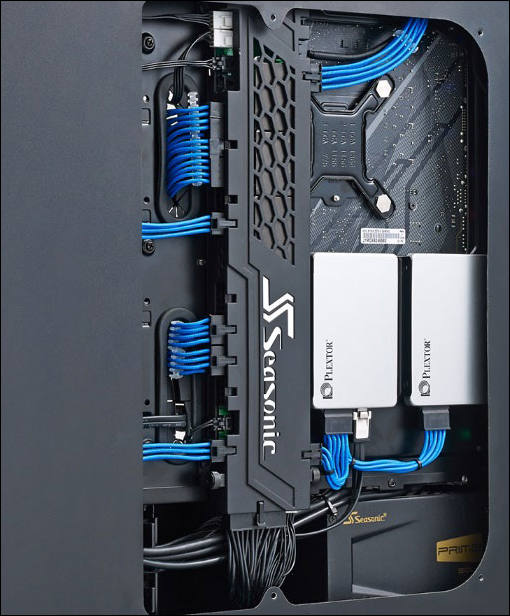
It allows to keep PV going, with more focus towards AI, but keeping be one of the few truly independent places.
-
In previously common 80mm fans PSU capacitor location was quite good, as it is near air intake. Lot of air passes by.
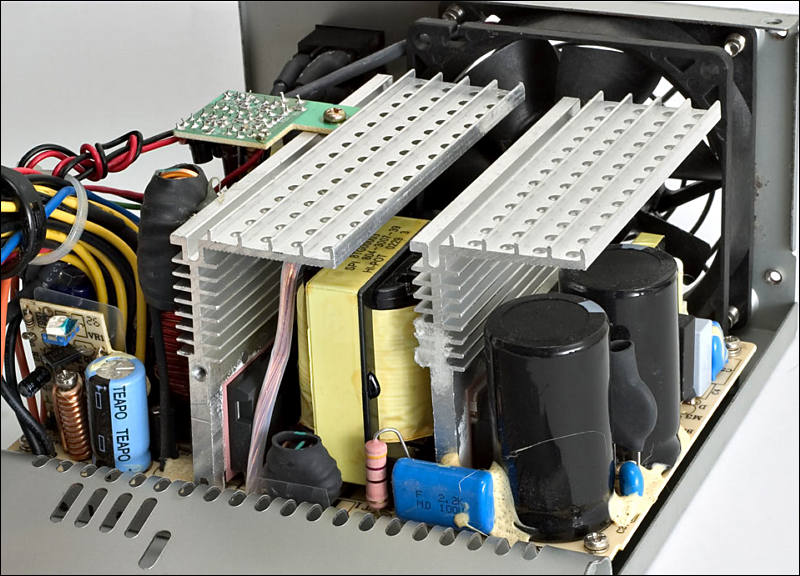
As we move to present day
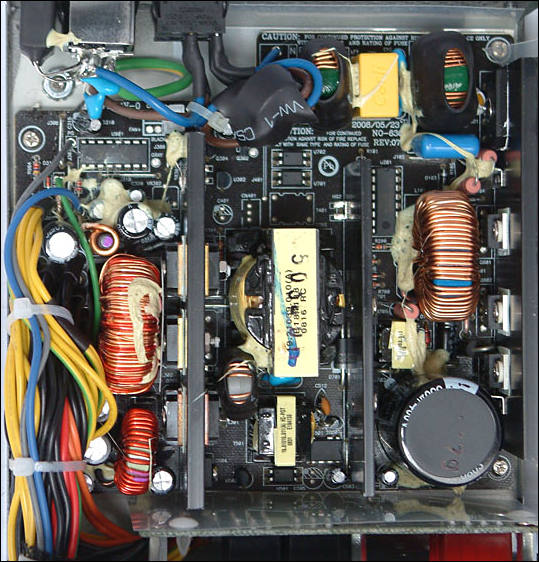
Air coming from top, but lot of time capacitor is in the corner, give it 85 degrees rated capacitor and some time and it'll be issue. Photo above is for good PSU (no longer made) that fail with around 90% probability within 3-5 years time.
Sample of one of Seasonic PSU designs
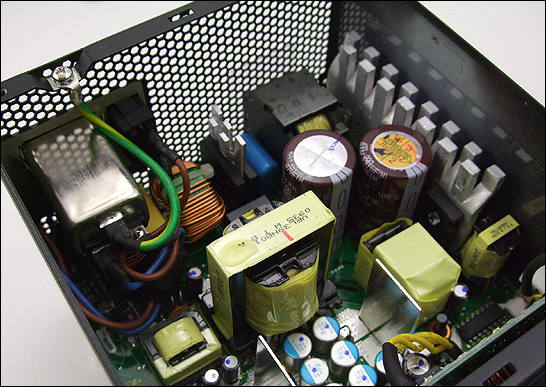
Better cooling, 105 degrees Japan capacitors and hence very long warranty (they have 7-11 year for good products).

 sa3135.jpg800 x 576 - 96K
sa3135.jpg800 x 576 - 96K
 sa3136.jpg539 x 562 - 89K
sa3136.jpg539 x 562 - 89K
 sa3138.jpg546 x 387 - 62K
sa3138.jpg546 x 387 - 62K -
Bad designers made heatsinks (now in lot of PSUs)
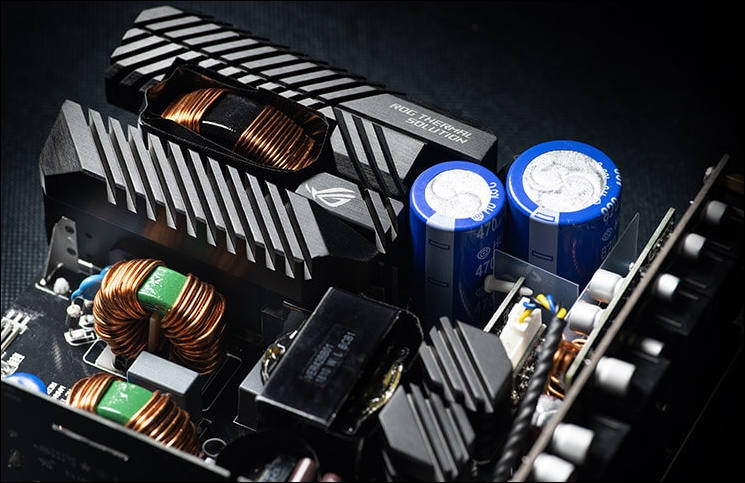
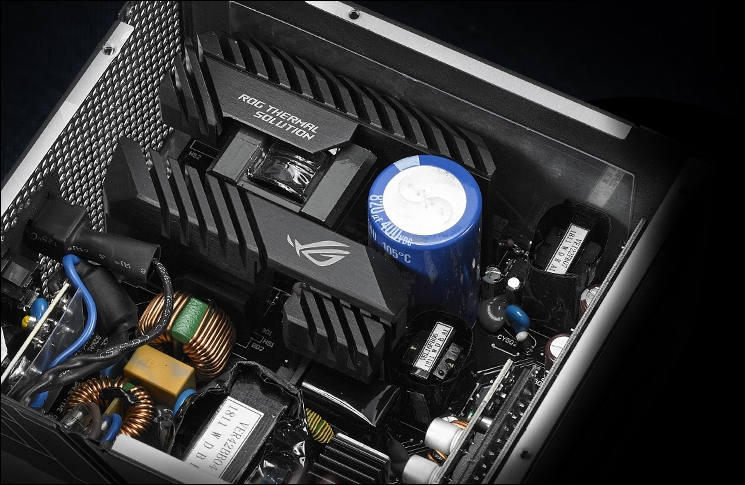
-
PSU orientation in low position:
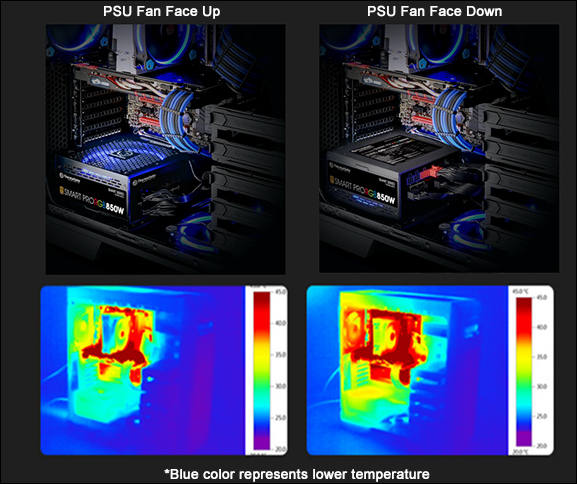
Can save your PSU capacitors life or lower temperature inside and save other capacitors and stuff.
-
-
PSU capacitors, philisters and science aka legend of Japanese caps
If you look around, people made lots of tier lists, for example for PSU capacitors - https://www.tomshardware.com/reviews/power-supplies-101,4193-5.html .
Yet it is completely philister, anti scientific point of view.
First - it is idiotic and static brand generalization. Each of brands have lot of capacitor lines made for different purposes and with different construction and prices. And it all changes constantly. Plus each brand has periodic problems with some specific capacitors, usually not big, but shit happens.
Second - properly selected and cooled 105 degrees Chinese/Taiwanese capacitor can live 10-20 times more compared to improperly placed 85 degrees Japanese one.
Third - capacitors life also depend on quality of PSU design, air flow, ripple, etc.
Fourth - top PSUs usually are designed for long work under load close to 90-100% of their specifications.
Yet, heat generated inside cheap Bronze class PSU will be around 30W for 300W real load with 550-600W PSU, and such PSU usually have much more space.For top expensive Titanium class PSU that many get to work at 570W (multiple top GPUs and such), heat will be around 47 watts with more crowded construction and more silent fan. Such PSUs really need top capacitors for long life.
Simple example, OCZ (now out of business) made ModXStream PSUs that liked to fail right after warranty
Initially they used more reputable (among Taiwanese :-)) Teapo LH 85C capacitors. Yet they failed and fast. Most probably reason - very low fan speed and bad location with two hot yet flat heatsinks.
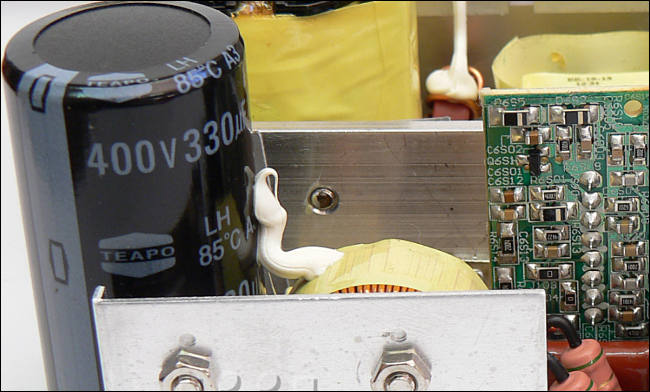
After this they switched to Transcend Electrolytic (Trec), not small company, but not regarded at all. Yet it behave much better.
All PSUs I saw with them worked for >6 years without hitch.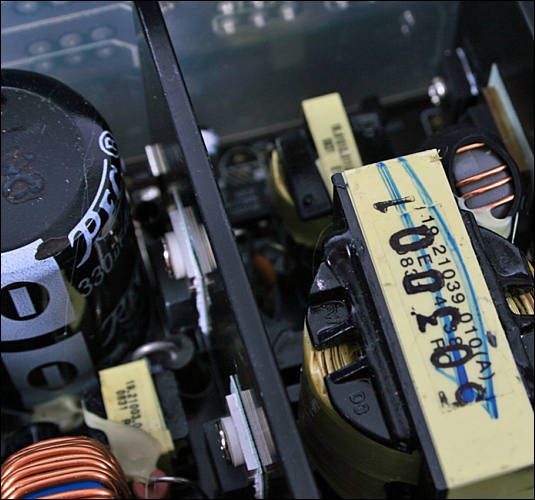
Note that press also have small gains from cartel agreement that exist among Japanese manufacturers for long long time -https://www.personal-view.com/talks/discussion/19266
-
You should never listen to such channels as they tell you about consumption and choosing proper PSU.
Why?
Because main things that define PSU are capacitors, diodes and transistors. All of them will be much better if you choose more powerful PSU of reputable brand (usually their specs are directly proportional to PSU power rating). Also heatsinks are usually better.
Better PSU also have better fans usually and different fan curve. If you add all previous - modern good brang high power PSU is usually literally silent (250-400 rpm of 14cm fan) up to 600-800w.
I am not even talking that if you decide to add new power hungry GPU (>300watts for modern one) you will be stuck as it is very hard to sell used PSU for any good price.
So, in reality you must do opposite - choose good PSU, but watch and wait for nice sales event. 30-40% sales happen periodically for superb PSUs.
-
Some manufacturers started to cheapen PSUs
Howdy, Stranger!
It looks like you're new here. If you want to get involved, click one of these buttons!
Categories
- Topics List23,991
- Blog5,725
- General and News1,354
- Hacks and Patches1,153
- ↳ Top Settings33
- ↳ Beginners256
- ↳ Archives402
- ↳ Hacks News and Development56
- Cameras2,367
- ↳ Panasonic995
- ↳ Canon118
- ↳ Sony156
- ↳ Nikon96
- ↳ Pentax and Samsung70
- ↳ Olympus and Fujifilm101
- ↳ Compacts and Camcorders300
- ↳ Smartphones for video97
- ↳ Pro Video Cameras191
- ↳ BlackMagic and other raw cameras116
- Skill1,960
- ↳ Business and distribution66
- ↳ Preparation, scripts and legal38
- ↳ Art149
- ↳ Import, Convert, Exporting291
- ↳ Editors191
- ↳ Effects and stunts115
- ↳ Color grading197
- ↳ Sound and Music280
- ↳ Lighting96
- ↳ Software and storage tips266
- Gear5,420
- ↳ Filters, Adapters, Matte boxes344
- ↳ Lenses1,582
- ↳ Follow focus and gears93
- ↳ Sound499
- ↳ Lighting gear314
- ↳ Camera movement230
- ↳ Gimbals and copters302
- ↳ Rigs and related stuff273
- ↳ Power solutions83
- ↳ Monitors and viewfinders340
- ↳ Tripods and fluid heads139
- ↳ Storage286
- ↳ Computers and studio gear560
- ↳ VR and 3D248
- Showcase1,859
- Marketplace2,834
- Offtopic1,319


